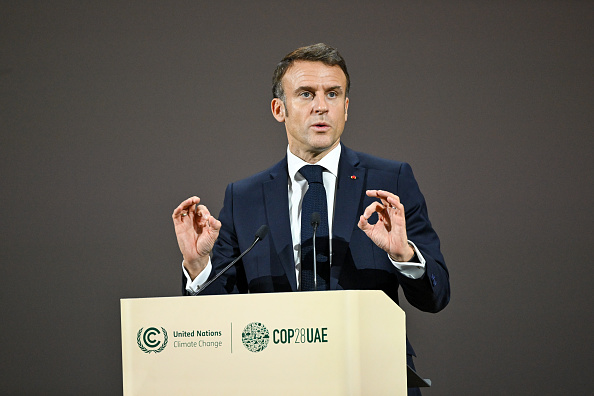European Union foreign ministers have reached a decision “in principle” to launch a naval mission to help secure merchant shipping in the Red Sea, overcoming Spanish opposition in doing so.
Experts say a Houthi attack on the proposed European maritime operation could further escalate the conflict and expose “bitter divisions” within the EU.
Late on January 22, the bloc approved sending a flotilla of warships to the Red Sea to escort commercial vessels, many of which have come under attack from Houthi rebels based in Yemen since Hamas launched terrorist assaults on Israel in October last year.
The Houthis, backed by Iran, claim they are acting in “solidarity” with the people of Gaza.
Josep Borrell, High Representative of the European Union for Foreign Affairs and Security Policy, said in December: “Irresponsible Houthi actions are a threat to freedom of navigation in the Red Sea.”
Eric Sigmon, a Madrid-based geopolitical risk analyst and former US diplomat, told Brussels Signal on January 22 that, while a split EU has now shown it can reach agreement over a naval deployment, much remains unresolved.
“It is not clear how it would deter future Houthi attacks, as my understanding is the mission would likely have a defensive posture,” he said.
Instead, the EU operation “runs the risk of suffering an attack” itself, he added.
Such an assault, in turn, would “further escalate the conflict in the region and expose the political divisions within the EU on how to respond to the conflicts in the Red Sea and Gaza”, Sigmon said.
Germany, Belgium, Italy and France have been most vocally supportive of an EU naval operation to protect merchant shipping from Houthi attacks, with Belgium and Germany promising to send one warship each.
While Spanish Prime Minister Pedro Sánchez had opposed the move, in the end, Madrid agreed to “constructively abstain” from the issue, ie not block other EU Member States from giving it the go-ahead.
Part of the motivation for most of the EU wanting to authorise such an operation, say experts, is based on how deeply Europe’s economy is exposed to conflict in the Red Sea.
The German chemical industry, for example, is already experiencing supply chain disruptions, its leaders have said.
Germany is pushing for the EU naval operation to begin “soon”. Foreign minister Annalena Bärbock said on January 22: “The final details of the joint EU mission now need to be worked out quickly.”
Gesine Weber, a Fulbright fellow at Columbia University’s Saltzman Institute of War and Peace Studies, said any EU naval action that occurs “is most likely a lowest common-denominator mission, with a clear focus on protection of civilian ships”.
She added that the EU “has experience with maritime security missions”.
Operating for the past 15 years off the Horn of Africa and Western Indian Ocean, the bloc’s counter-piracy operation, Atlanta, is “probably the most successful Common Security and Defence Policy mission”, Weber said.
The EU has “played the role of a maritime security provider in the past, so it’s not terra incognita [unknown territory]”, she added.
Spain had vetoed a proposal to expand Atalanta, in which it participates, to encompass Red Sea operations against the Houthi rebels.
Elisabeth Braw, a senior fellow at the Atlantic Council’s Scowcroft Centre, said a new EU naval mission was “not going to immediately get the Houthis to stop attacking merchant vessels”.
It would, though, send an “important signal” that EU Member States “take the attacks seriously and are willing to do something about it”, she added.
The European naval plans come after 18 officers aboard the Greek frigate Hydra, which was set to join separate US-led operations against the Houthi, resigned last week when their allowance for taking part was announced as €86 a day.





